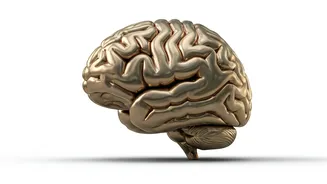Embrace Daily Learning
One of the most effective methods for boosting brain function is to consistently engage in learning. This does not necessarily mean formal education. Instead,
it's about making a conscious effort to acquire new information daily. This could be anything from reading a chapter of a book to watching a documentary or learning a new skill. The brain is a muscle; the more you use it, the stronger it becomes. Regular learning creates new neural pathways, enhances memory, and boosts cognitive flexibility. Consider dedicating at least 30 minutes each day to learning something new. This habit encourages lifelong growth and fuels cognitive function. Incorporate learning into everyday activities to make it a natural part of your routine, thereby maximizing its benefits.
Prioritize Physical Activity
Physical activity plays a pivotal role in the health and performance of your brain. Regular exercise boosts blood flow to the brain, supplying it with essential oxygen and nutrients. This improved circulation enhances cognitive function, memory, and focus. Exercise also stimulates the release of endorphins, which can elevate your mood and reduce stress, creating a favorable environment for optimal brain performance. Even moderate physical activity, like a brisk walk or a short workout, can significantly improve cognitive function. Aim for at least 30 minutes of moderate-intensity exercise most days of the week. Consider incorporating activities you enjoy, such as dancing, swimming, or cycling, to stay motivated and make exercise a consistent part of your lifestyle. The positive impact of exercise on cognitive function will become apparent.
Cultivate Mindfulness and Meditation
Mindfulness and meditation provide powerful tools for managing stress and enhancing cognitive function. These practices involve focusing your attention on the present moment without judgment, which helps calm the mind and reduce mental clutter. Regular meditation has been linked to improved focus, memory, and emotional regulation. It strengthens the brain regions associated with attention and self-awareness. Even a few minutes of meditation or mindfulness exercises each day can lead to noticeable improvements. Begin with short meditation sessions, gradually increasing the duration as you become more comfortable. You can also incorporate mindfulness into daily activities, such as eating or walking, to increase your presence. Meditation helps foster mental resilience and improve overall cognitive well-being, allowing for greater focus and concentration.
Nourish Your Brain
The brain requires a steady supply of essential nutrients to perform at its best. What you eat directly impacts your brain's health and function. A balanced diet rich in fruits, vegetables, whole grains, and healthy fats provides the brain with the fuel it needs. Foods high in antioxidants, like berries and leafy greens, protect the brain from damage. Ensure you are consuming adequate amounts of Omega-3 fatty acids, which are vital for brain health and can be found in fish and nuts. Limiting processed foods, sugary drinks, and excessive alcohol consumption also aids in preserving cognitive functions. Aim for a diet rich in nutrients to provide your brain with all it needs to function at its full potential.
Prioritize Adequate Sleep
Sleep is fundamental for cognitive function. During sleep, the brain consolidates memories, clears out toxins, and repairs itself. Insufficient sleep can impair memory, concentration, and decision-making abilities. Aim for 7–9 hours of quality sleep each night. Establish a consistent sleep schedule by going to bed and waking up at the same time daily. This routine helps regulate your body's natural sleep-wake cycle. Create a relaxing bedtime routine to prepare your mind and body for sleep. Make sure your bedroom is dark, quiet, and cool to optimize your sleep environment. Avoid stimulants, like caffeine and nicotine, before bed. Quality sleep contributes significantly to improved cognitive performance.















